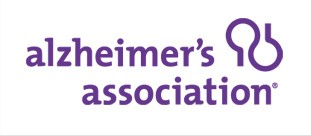The original version of this story has been updated to reflect new information.
The California Southland Chapter of the Alzheimer’s Association today announced its separation from the national organization. It’s the fifth affiliate nationwide to separate in recent weeks.
The nonprofit will be known as Alzheimer’s Greater Los Angeles (ALZGLA) and cover the same area: Los Angeles, San Bernardino and Riverside counties. This morning’s announcement formalizes a decision made by the local board on Dec. 16.
The Los Angeles-based affiliate was among those that voted against the Mission Forward plan last fall, a vote that was evenly split among 54 traditional chapters. There also are 81 chapters that are part of the national organization that were not part of that October delegate assembly.
Affiliates have until Jan. 15 to notify the Chicago-based national organization whether they plan to move ahead with the organization’s Mission Forward plan, a reorganization that aims to roll up all affiliates into a single nonprofit entity by July 1.
The Southland Chapter, which reported $5.9 million in revenue in the most recent fiscal year, joins four others that have separated, representing an aggregate of almost $24 million in total revenue:
• Greater New Jersey ($3.3 million)
• New York City ($6.9 million)
• Orange County ($4.5 million)
• San Diego ($3.1 million)
Overall, Alzheimer’s Association reported total revenue of about $273 million in the most recent fiscal year, including $131 million by the national office. The 27 chapters that voted against Mission Forward represented a total of about $73.4 million in revenue and the 27 that voted in favor represented approximately $64.6 million.
The three Southern California chapters that disaffiliated cover six of the state’s southernmost and largest counties. The Alzheimer’s Association has opened new offices in Southern California, including in San Diego and California Southland, to maintain a presence in the region, according to a spokesperson.
The former Southland chapter’s reasons for disaffiliation echo those of other affiliates have separated in recent weeks. As a separate organization, ALZGLA said there would be more freedom to partner with major local, national and international cause-related nonprofits, funders and businesses. Affiliates also have cited keeping local funds raised in the region rather than send them to national. Under the Alzheimer’s Association’s shared fundraising model, as much as 40 percent of unrestricted donations were sent to the national organization.
“The ability to retain all donated funds and make program decisions that are relevant to the diverse Los Angeles, San Bernardino and Riverside populations were driving factors in our decision to separate,” Board Chairman Mark Liberman said in a statement. “Our board and executive staff believe that the growing needs of the communities we serve are best met by separating, rather than consolidating into a single nationally directed group, headquartered far from the individuals and families we have been serving for more than three decades,” he said.
Stewart Putnam, chairman of the national board of Alzheimer’s Association, previously has said he expects the “vast majority” of affiliates to reorganize into a single, national entity. Some disaffiliations were to be expected and he’s said that the organization will work to ensure that its programs and services reach all areas of the nation.









